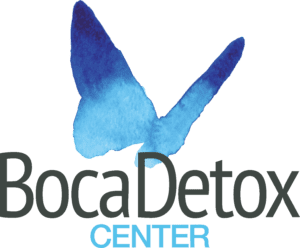Morphine Abuse: What Happens in the Long Term?
Morphine is a powerful opiate derived from a poppy plant. It is prescribed to treat intense pain – usually in a hospital setting after a person has undergone major surgery. It can also be prescribed outside the hospital to someone who suffers from chronic, debilitating pain. Morphine binds with opioid receptors in the brain, which sets off a chemical release that causes euphoria and relaxation. It is highly addictive, and people who abuse the drug tend to build up a tolerance for it quickly. This leads a person to take more and more of the drug, which puts them at risk for overdose.
Unfortunately, the statistics around overdose in the US are grim. According to the Centers for Disease Control and Prevention about 115 people in the US die from an opioid overdose, including morphine overdose. The number of people dying form morphine specifically is rising. The number of people in the U.S. succumbing to heroin or morphine abuse jumped 7.6 times between 2002 and 2016.
Even those who do not overdose can suffer long term physical consequences form morphine abuse. These effects can range from inconvenient to totally debilitating. If you have a loved one you suspect may be addicted to morphine, it is important to talk to them about the full extent of the risks associated with drug abuse.
Long Term Physical Side Effects of Morphine Abuse
Long-term morphine abuse can cause chronic health problems and dangerous physical harm. These effects can include:
- Chronic constipation, which can ultimately cause hemorrhoids, nerve damage, fecal impaction and other bowel issues and damage
- Difficulty with thinking clearly
- Memory damage or loss
- Issues controlling impulses and other behavioral problems
- Hyperalgesia, which involves feeling pain more intensely than previously
- Changes to the brain structure that can affect overall function
- Difficulty recovering after suffering from an injury or a surgery
- Gastrointestinal bleeding
- Heartburn and damage to the esophagus from nausea or vomiting
- Oxygen deprivation as a result of consistent respiratory depression
- Liver and kidney damage
- Muscle tone loss
- Damage to the cardiovascular system from blood pressure fluctuation and oxygen deprivation
- Hormonal imbalances, which can trigger mood disorders, fertility issues and a higher risk for cancer
Treating Morphine Addiction
The best way to avoid the long-term consequences is to get help for morphine addiction as soon as possible. Contacting licensed addiction treatment facility can get you started on your road to recovery. Morphine addiction can be treated in either an inpatient or outpatient facility. Regardless of the extent of your addiction, you should have medical supervision facility for the first stage in order to manage physical withdrawal symptoms. These withdrawal symptoms can include:
- Irregular sleeping patters
- Pain in the joints or muscles
- Higher appetite
- Extreme mood swings
- Sweating
- Fear or anxiety
After evaluation, you will receive an individualized treatment plan that caters to all the angles and factors that may influence your addictive behaviors. Residential programs, outpatient therapy or group sessions can all be valuable in treatment and recovery from morphine addiction. Holistic therapy options, such as yoga and mindfulness exercises, can also help treat addiction because they address the mental health issues that may underscore addiction. There are many different approaches to addiction treatment, and seeking treatment in a specialized facility is the best way to ensure you are on the right path.
The road to recovery is a long one, but a rewarding one. If you would like more information about morphine addiction treatment, or about Boca Detox Center’s detox, inpatient programs, do not hesitate to call (877) 337- 9077.

Reviewed for accuracy by:
Susan Shirley
LMHC
Serving as the Inpatient Clinical Director at Immersion Recovery Center, Susan will work directly with staff members, clients, and family members to ensure the clinical program remains as effective and individualized as possible. Susan is no stranger to the fields of behavioral health and addiction. She has over 25 years of experience, working in an inpatient setting, an outpatient setting, acute stabilization and nearly all other settings in the realm of addiction recovery.
We Are Here For You
Let Us Help You Heal
Our detoxification experience is second to none.
Learn how we can help by speaking with one of our Treatment Advisors today.






















